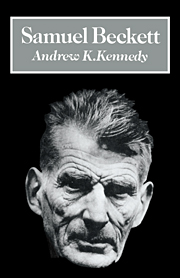11 - Concluding reflections
Published online by Cambridge University Press: 23 February 2010
Summary
This book inevitably carries the traces of pressure, of both contemporary and personal points of awareness. Beckett's work has now reached an all but universal public and is met with increasing receptivity. One can even speak of the growing popularity of Beckett though not without certain ironies. The feeling that Beckett ‘speaks to our condition’ must help the reception of his work; but, at the same time, the ‘culture gap’ between dominant aspects of the contemporary world and Beckett's world also appears to be growing. The spiritual and linguistic complexity of Beckett (with its roots in modernism, as we have argued) comes into collision, at certain points, with a brasher, at once more superficial and more technological ‘post-modernist’ culture (a somewhat ill-defined term for literature, used here only as a pointer). Whilst our culture is seemingly hurtling in much more extroverted directions, a new generation of readers and theatre goers is attuned – probably more than the immediate post-war generation was – to the inward and unstable elements in Beckett's work: its spirit of uncertainty, humility and fundamental scepticism. At the same time, an age that no longer regards realistic ‘representation’ as the norm of writing is likely to be more receptive to radical artistic experimentation to the very limits of writing.
While Beckett is decelerating, as it were, the circus around him is accelerating.
- Type
- Chapter
- Information
- Samuel Beckett , pp. 155 - 163Publisher: Cambridge University PressPrint publication year: 1989

